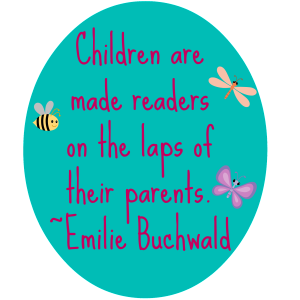Make Reading Time Fun: 5 Simple Tips
Are you feeling frustrated trying to read with your child every night? Does it just seem like such a struggle to find a book, and fill the allotted 30 minutes of time the teacher has requested? Are you just flat out wondering how much you are really helping your child?  Well, if any of you are in this situation, I have a 5 simple tips to help make reading time with your child more enjoyable and constructive.
Well, if any of you are in this situation, I have a 5 simple tips to help make reading time with your child more enjoyable and constructive.
Find the right book
First, it’s important to find the right books. A common misconception is that you want your child to read books that are challenging. Although this does become true at some point, not when initially learning to read. A good rule of thumb when picking a book is to have your child turn to any page and try to read it. If there are more than 5 words on the page that your child does not know, that book is too difficult. We call this the “five finger rule” and it’s probably already familiar to your reader. More simply stated, children should know at least 90% of the words on every page. If a book is too demanding, then the child may struggle with comprehension and experience a high level of frustration. You want to make reading a fun and comfortable activity for the reader.
Find a book of interest to the child
You can also have fun with the types of readings you choose. Talk to your child’s teacher and get a good idea of what the class is learning in Social Studies or Science. You can find many online articles and magazine pieces which can be both interesting and understandable. In other words, it doesn’t matter so much what they’re reading, just that they are able to read it with minimal help. When you pick a subject that your child is already interested in learning about, you have just engaged your reader!! This is half the battle.
Choral Reading
Next, make sure your child reads aloud. This not only ensures that he/she is reading at an acceptable pace, but allows for the practicing of oral reading skills. For children who are hesitant to read aloud, and maybe unsure of their abilities, you can also encourage choral reading. This is when both you and your child read at the same time. It allows your child to make mistakes, yet still practice and hear fluency.
Discussing the Book
Finally, when you find a book that you both enjoy, talk about it together and be sure to read it again and again! You don’t have to constantly pick new material to improve your reading ability at first. Rereading is an age-old technique that allows children to rehearse their fluency and gain confidence in themselves and their abilities.
Talking about what you read at the end of the book also allows your child to share with you what they remember and to ask questions. It’s also a great time to ask your reader to predict what they think might happen to the characters in the future or to create an alternate ending to the story. A child sees this as fun because he/she can imagine what might happen to those three little pigs if the big, bad wolf HAD been able to blow down their brick house? Or what if Cinderella had lost an earring instead of that slipper? See, the possibilities really are endless…
